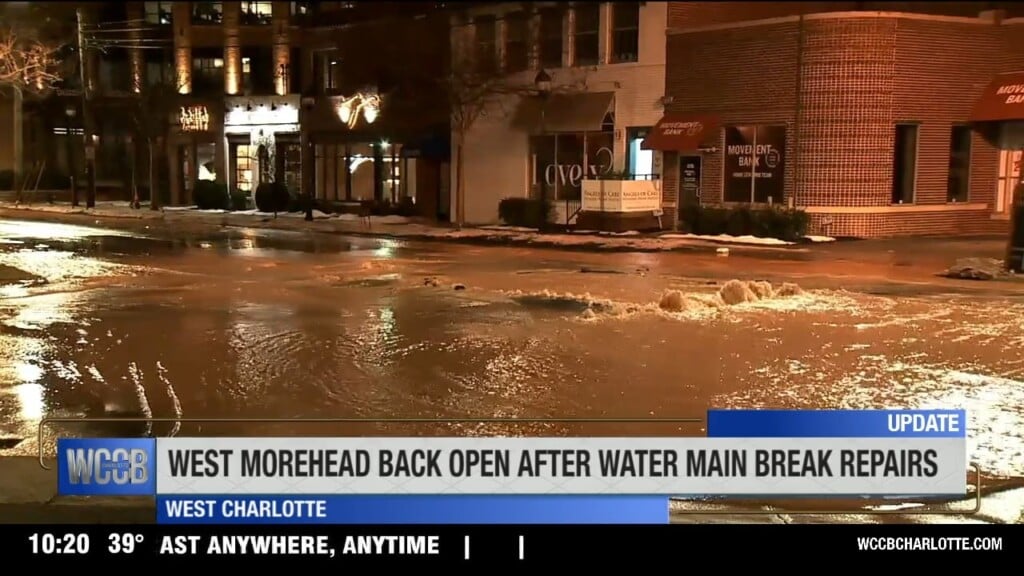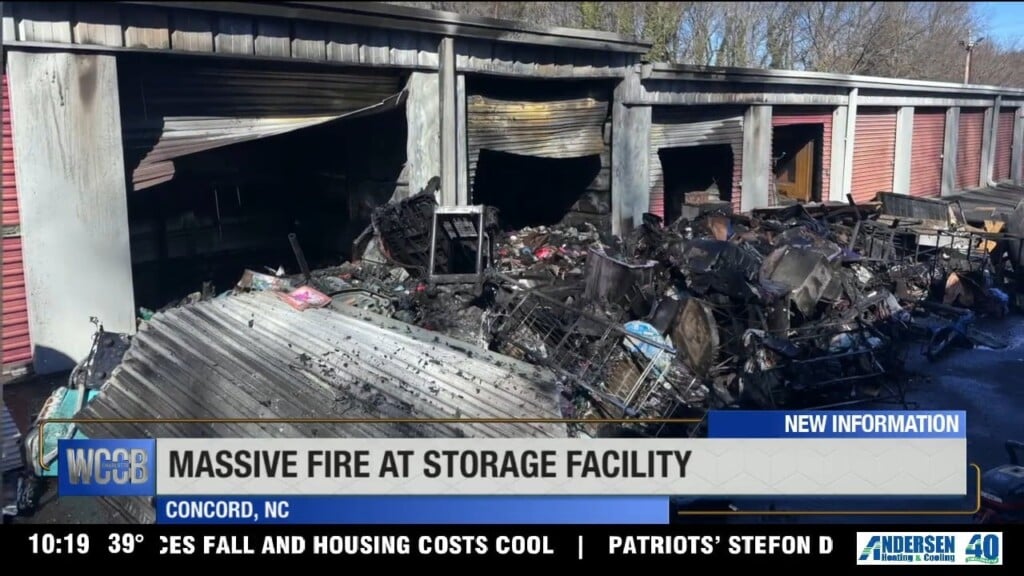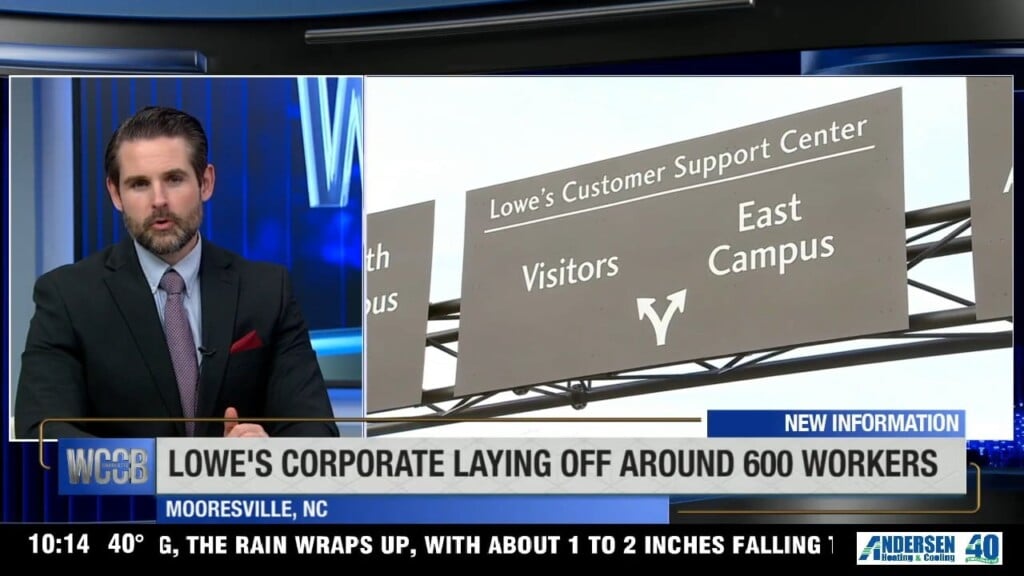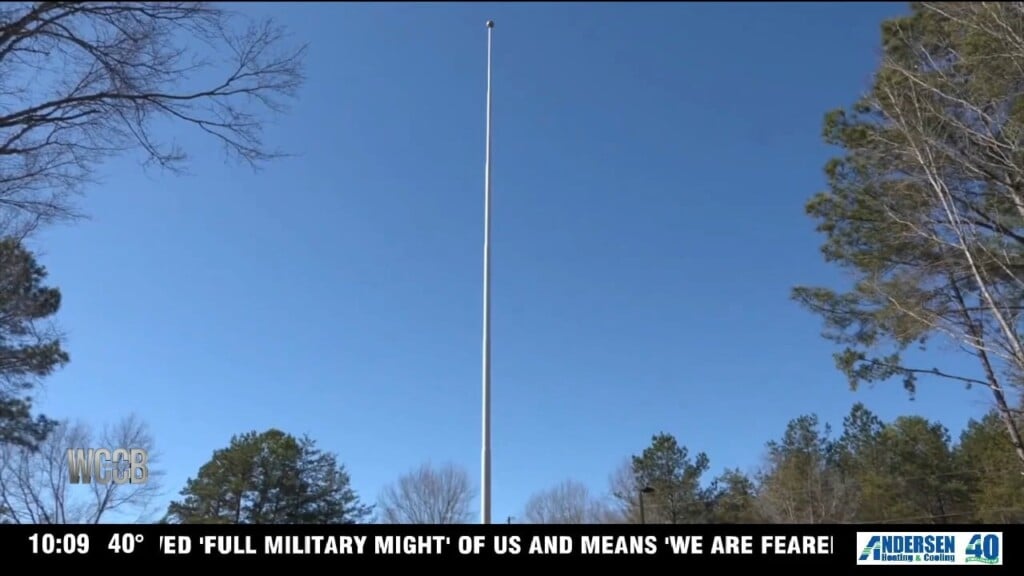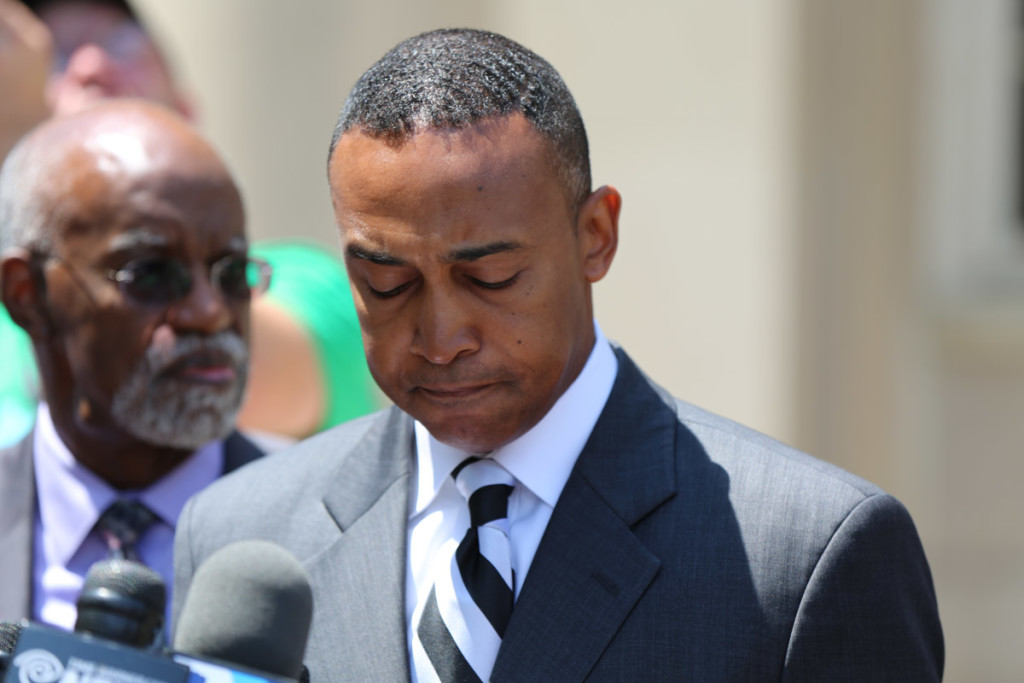
CHARLOTTE, N.C. – Former Charlotte Mayor Patrick Cannon pleaded guilty Tuesday to one count of honest services wire fraud in U.S. District Court in Charlotte.
A federal criminal bill of information charging the former mayor and a filed plea agreement were unsealed on Monday. Cannon, 47, appeared in court Tuesday and formally pleaded guilty to the charge before U.S. Magistrate Judge David S. Cayer.
“Former Mayor Cannon used his elected official position to enrich himself at the expense
of the City of Charlotte,” said U.S. Attorney Tompkins at a news conference following the plea hearing. “Through his actions, Cannon betrayed the trust of his constituents and his peers, compromised the integrity of our local government and damaged Charlotte’s good reputation as a city that does business the honest way. Cannon will now be held accountable for depriving the citizens of Charlotte of their right to his honest and faithful services and for putting personal gain over the greater good. As we move forward, let one message be clear: My office will continue to
investigate allegations of public corruption and go after anyone who uses public office as a
means of getting rich. Charlotte has no room for corrupt politicians.”
“This nearly four year investigation was complex and required a great deal of diligence
and dedication from the FBI Special Agents and prosecutors involved. By its very nature, public
corruption is conducted in a shroud of secrecy and can be difficult to detect. Fortunately, the
FBI has the capability to use a number of lawful, sophisticated tools and techniques to capture
key evidence. The criminal actions of Patrick Cannon brought undeserved shame and
embarrassment upon the city of Charlotte. As the city begins to heal, citizens should be
reassured, this investigation does not end with today’s guilty plea. FBI agents will continue to
follow the trail of evidence in this case and look into related allegations as the investigation
moves forward,” said John A. Strong, Special Agent in Charge of the FBI in North Carolina.
According to the criminal bill of information to which Cannon pleaded guilty, other
documents filed in this case and statements made in court:
Here is the background and history of the case, from a news release provided by the U.S. Attorney’s Office:
I. Background
Beginning in on or about December 7, 2009, and continuing through March 26, 2014,
Cannon devised a bribery scheme and used his official position to enrich himself. During the
course of the scheme, Cannon was an elected official serving as a member of the City Council,
and/or Mayor Pro Tem or Mayor of the City of Charlotte. During the relevant time period,
Cannon solicited and accepted gifts, payments and other things of value in exchange for a pattern
of official actions favorable to the persons who secretly paid him. Specifically, Cannon accepted
a total of at least $50,000 from a Charlotte business owner and two undercover agents posing as
investors interested in opening businesses in Charlotte. Cannon accepted the bribes in exchange
for use of his official position on an “as needed” basis, including communicating with City and
County officials and others to assist his payors’ projects and intervening with any zoning,
permitting and transportation issues, among others. Cannon’s actions and fraudulent bribery
scheme defrauded the citizens and the government of Charlotte and deprived them of their right
to Cannon’s honest and faithful services.
II. The Scheme to Defraud
a. The Scheme to Solicit and Accept Things of Value from Businessman No. 1
(“BM1”)
The criminal bill of information identifies BM1 as the owner of a company that owns and
operates a live adult entertainment club in the Charlotte area (the “Club”). During the relevant
time period, Cannon secretly solicited, accepted and agreed to accept periodic payments and
checks from or on behalf of BM1 in exchange for Cannon’s use of his elected offices to exert
influence over City zoning, planning and transportation officials, as needed or required by BM1.
Specifically, in and around January 2013, Cannon accepted approximately $2,000 in cash from
BM1 in exchange for Cannon’s influence in relocating the Club away from the proposed LYNX
Blue Line Extension (BLE), thereby enabling BM1 to keep his establishment open as an adult
club.
b. The Scheme to Solicit and Accept Things of Value from Undercover
Employee No. 1 (“UCE1”)
UCE1 was an FBI undercover agent who Cannon believed to be a business manager for a
Chicago-based venture capital company interested in opening a nightclub/bar in Charlotte at a
property identified as the “Firehouse.” The selected location had numerous zoning and parking
issues. Beginning no later than December 12, 2012 through on or about March 26, 2014,
Cannon secretly solicited, accepted and agreed to accept $12,500 in cash and the occasional use
of an apartment in exchange for Cannon’s influence and intervention as needed to assist UCE1 in
dealing with City and County officials and working out any zoning, licensing and permit issues
associated with the selected property.
c. The Scheme to Solicit and Accept Things of Value from Undercover
Employee No. 2 (“UCE2”)
UCE2 was an FBI undercover agent, who Cannon believed to be a Las Vegas real estate
developer looking to secure foreign investors to finance commercial real estate developments in
Charlotte. Beginning no later than May 21, 2013 through on or about March 26, 2014, Cannon
secretly solicited, accepted and agreed to accept a total of $36,000 in cash, a trip to Las Vegas
and the occasional use of an apartment in exchange for use of his elected position to create and
make false representations on behalf of UCE2 to individuals Cannon believed to be foreign
investors. Specifically, at the request of UCE2, Cannon traveled to Las Vegas, and in his official
capacity as Charlotte’s Mayor Pro Tem delivered a presentation to purported investors during
which Cannon falsely told them that he had successfully used his position in the past to assist
with a similar project in Charlotte. Over the course of his dealings with UCE2, Cannon
promised to use his new position as Mayor to make contacts and exert his official influence over
City and County officials to secure federal financing for transportations projects that would
benefit UCE2’s company; offered to use and used the Mayor’s office to persuade one of UCE2’s
purported skeptical investors to invest in UCE2’s company; and promised to give UCE2’s
company preferential treatment over other potential developers.
During the relevant time period, Cannon never disclosed to any City and County
employees whom he contacted his relationship with BM1, UCE1 and UCE2 or that he was
receiving cash, gifts and other things of value from them in exchange for use of his official
position.
III. The Charged Offense and Penalties
Cannon has pleaded guilty to one count of honest services wire fraud. In pleading guilty,
Cannon has admitted to defrauding and depriving the citizens of Charlotte and the Charlotte
government of their right to Cannon’s honest and faithful services through bribery and the
concealment of material information. (The attached table outlines the manner and means by
which Cannon carried out the bribery scheme).
The charge carries a maximum prison term of 20 years, a $250,000 fine or both.
According to the terms of the plea agreement, Cannon has also agreed to pay restitution.
Cannon’s final sentence and restitution amount will be determined by a federal judge at
sentencing. Cannon is currently released on bond and a date for his sentencing hearing has not
been set.
The case is being prosecuted by Assistant United States Attorneys Michael E. Savage and
Craig D. Randall of the U.S. Attorney’s Office in Charlotte. The ongoing investigation is being
handled the FBI.
